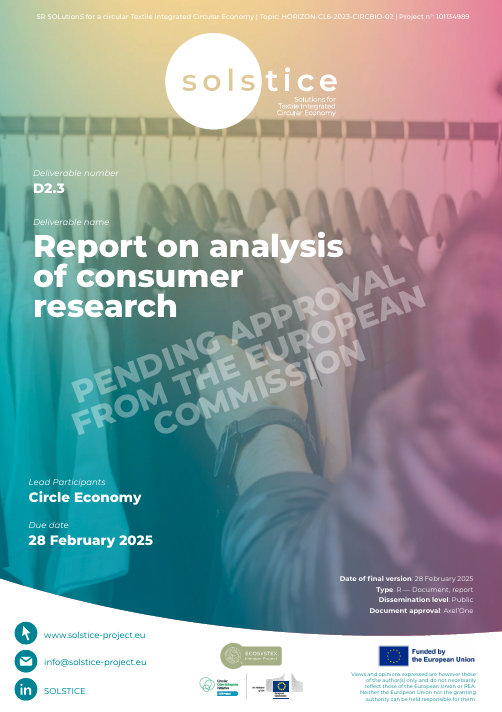
This report explores circular economy opportunities in the poultry sector in Sénégal, a growing industry that nevertheless faces environmental and social health challenges. Through an in-depth analysis of the value chain, material flows, and current issues, the study identifies concrete levers for circular transformation of the sector.


This report explores circular economy opportunities in the poultry sector in Côte d’Ivoire, a growing industry that nevertheless faces environmental and social health challenges. Through an in-depth analysis of the value chain, material flows, and current issues, the study identifies concrete levers for circular transformation of the sector.

.png)
.png)
The Circularity Gap Report Finance offers a global overview of known investments in businesses engaging with the circular economy over the six-year period between 2018 and 2023. By creating a clear snapshot of circular economy investment volumes, it aims to improve circular economy financial reporting, support impactful capital allocations to the circular economy and inform impactful investment decisions.


This report summarises findings about consumer behaviour related to circular textiles in the four territories: Catalonia, Berlin, Prato, and Grenoble as researched under the SOLSTICE project.
Guided by Circle Economy, the four territories conducted focus groups to better understand consumer attitudes towards circular economy interventions. Under the following four themes comparable results were generated, allowing for the exploration of territory-specific characteristics:
1. General consumer behaviour surrounding and attitudes towards textile consumption
2. Consumer awareness of circular solutions
3. Challenges and barriers to circular solutions
4. Opportunities for a pilot project


This briefing outlines the barriers and measures that need to be considered when designing policies for a just transition in the EU’s construction industry. It is intended for social partners—including trade unions and sectoral branch organisations—governments, and other institutions in the EU.
The briefing dives into two of the circular building pathways from the Circular Building Coaltion’s 2024 Four Pathways Report: 1) Build with the Right Materials; and 2) Build Nothing. These pathways are explored alongside their regulatory and market-level drivers, barriers and the measures needed to safeguard workers.


This briefing note describes work by ICMM, the International Copper Association (ICA) and Circle Economy Consulting to begin the process to develop potential headline indicators and key performance indicators (KPIs) to measure circularity across the mining and metals industry. These indicators span different scales, from individual companies to entire value chains. These metrics are prototypes. They are designed to provide a starting point for discussion and now need to be tested and refined by mining and metals companies to ensure they capture the intended information.

.png)
Companies are struggling to measure their circular economy performance and the corresponding impact following the emerging standards and regulations. Working through these challenges with businesses, about a year ago Deloitte and Circle Economy Consulting recognised that scope and boundary setting guidance was something that was lacking from the dialogue.
The boundary setting framework presented in this article is the result of our joint thinking and testing in response to this. Amongst others, we were supported by four businesses that were willing to use their circular solution to test and refine this emerging thinking.


This case studies collection demonstrates how circular strategies in the built environment can be translated into practice. It presents the cases through the lens of the 9R framework and its nine guiding principles for achieving maximum circularity impact.
Through 18 cases from across Europe, we see how these guiding principles can be applied in everything from the transformation of historical buildings to new constructions designed as material banks. This provides valuable insights into how circularity can reduce the climate footprint while simultaneously creating new economic and social opportunities.


This report takes stock of Circle Economy’s achievements in 2024 and accumulated results over the past decade.
In 2024, we launched a new approach to delivering impact, focusing on three key objectives to accelerate the global transition to a circular economy:
Together, these objectives drive our activities, partnerships, and projects—laying the foundation for transformative, long-term impact. Explore stories of progress in our 2024 Impact Report.
